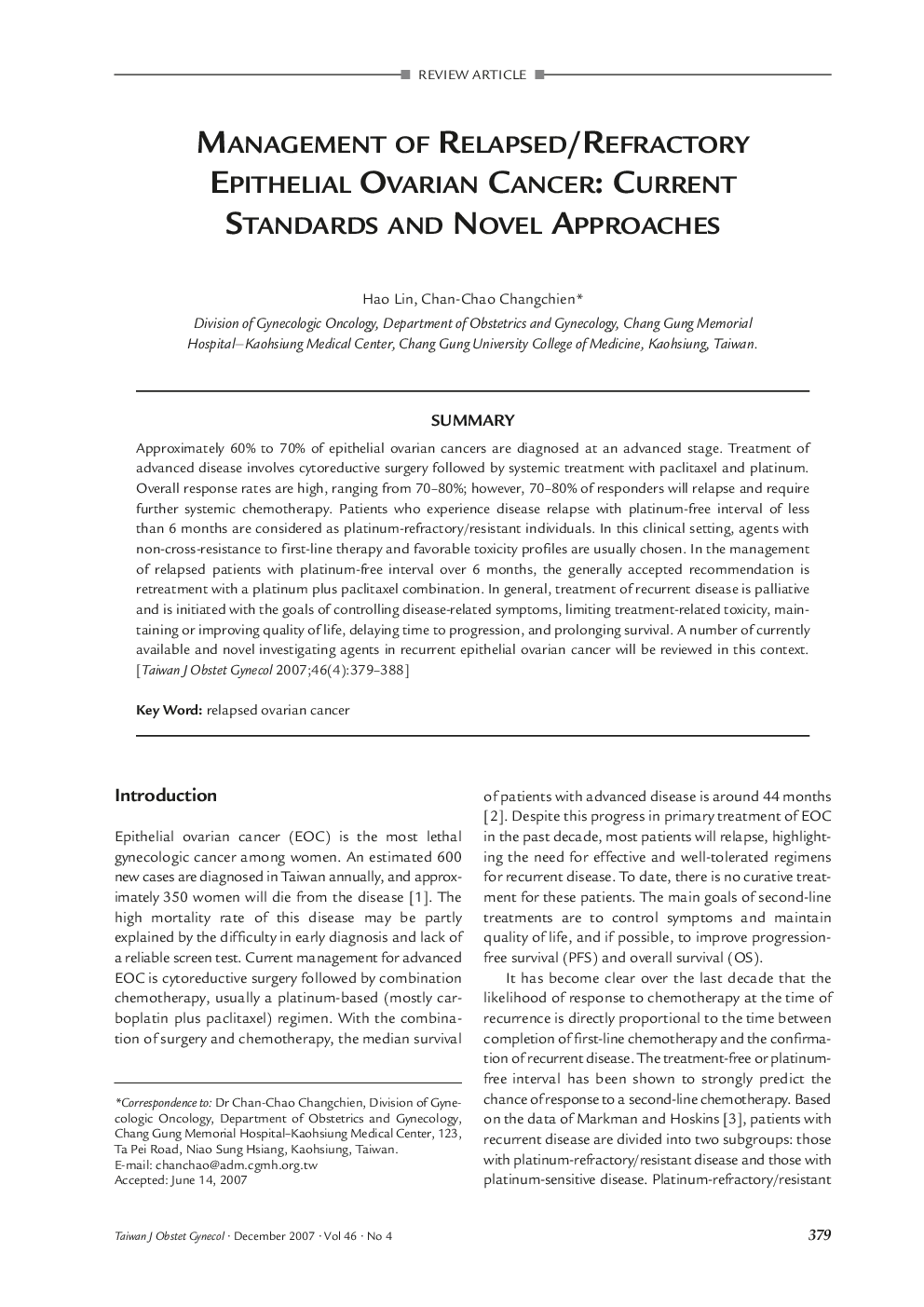| Article ID | Journal | Published Year | Pages | File Type |
|---|---|---|---|---|
| 3976067 | Taiwanese Journal of Obstetrics and Gynecology | 2007 | 10 Pages |
SUMMARYApproximately 60% to 70% of epithelial ovarian cancers are diagnosed at an advanced stage. Treatment of advanced disease involves cytoreductive surgery followed by systemic treatment with paclitaxel and platinum. Overall response rates are high, ranging from 70–80%; however, 70–80% of responders will relapse and require further systemic chemotherapy. Patients who experience disease relapse with platinum-free interval of less than 6 months are considered as platinum-refractory/resistant individuals. In this clinical setting, agents with non-cross-resistance to first-line therapy and favorable toxicity profiles are usually chosen. In the management of relapsed patients with platinum-free interval over 6 months, the generally accepted recommendation is retreatment with a platinum plus paclitaxel combination. In general, treatment of recurrent disease is palliative and is initiated with the goals of controlling disease-related symptoms, limiting treatment-related toxicity, maintaining or improving quality of life, delaying time to progression, and prolonging survival. A number of currently available and novel investigating agents in recurrent epithelial ovarian cancer will be reviewed in this context.
